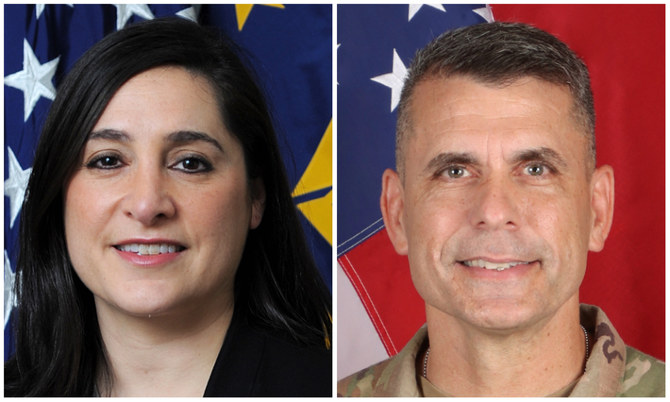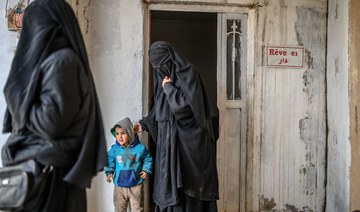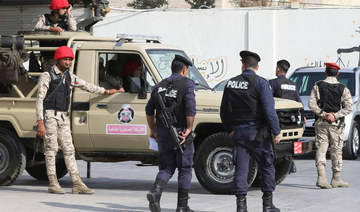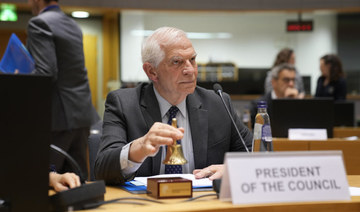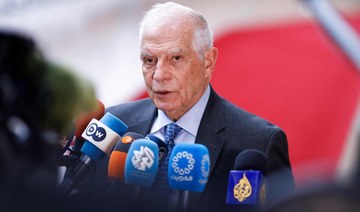WASHINGTON: The US government remains committed to defeating Daesh and its ideology in Iraq, Syria, the wider Middle East and all around the world, even though the extremist group no longer holds any territory, according to military and defense chiefs.
Maj. Gen. Matthew McFarlane, commander of the Combined Joint Task Force — Operation Inherent Resolve, which supports efforts by allied forces to defeat Daesh, and Dana Stroul, the deputy assistant secretary of defense, on Tuesday gave details of the US military and political strategies for confronting the threat from the extremist group, alongside allies in the Middle East, Europe and around the world.
They said the US government is still committed to supporting its regional partners in the battle against Daesh in Iraq and Syria.
McFarlane said the group persists as an ideology and in the aspirations of extremists who continue to represent a terrorist threat to the region.
However, the US military’s role in Iraq is non-combat in nature, he added, with forces providing training and support so that the Iraqi military can effectively confront the Daesh elements in its territory.
“We are not here to fight on behalf of Iraq,” he said.
The US military supports the Peshmerga, the military force that is part of the autonomous Kurdish government in northern Iraq, McFarlane added, and also continues to back and train the Syrian Democratic Forces, a mix of Arab and Kurdish anti-government militias in northeastern Syria that are partners of the US in the fight against Daesh.
Although Daesh largely has been defeated and lost the territories it occupied in Iraq and Syria in 2014, elements remain at large in the region around the border between the countries.
The US launched its war against Daesh in 2014 after the group’s forces occupied much of northern Iraq and the strategically important city of Mosul.
In 2017, Iraqi authorities declared victory over Daesh after the recapture of Mosul following bloody battles. In addition, the Syrian city of Al-Raqqa, which was also under Daesh control, was recaptured by US and SDF forces.
Operation Inherent Resolve cost the US government more than $14 billion between between 2014 and 2017, according to a US Department of Defense report.
A US military report on anti-Daesh operations last year in Iraq and Syria revealed that nearly 700 extremists were killed and 374 detained. No Americans died.
Stroul said the war against Daesh continues, with the help of US allies.
“There still much work to be done in the enduring defeat of ISIS,” she said, using an alternative name for Daesh.
As long as Daesh’s ideology is present in the region and elsewhere in the world, it could “reconstitute” itself, she added, so the US government will continue to work with Iraqi authorities, the SDF, and “84 coalition members and (the) NATO mission,” to eliminate the threat.
The officials said about 900 US military personal remain in Syria to target Daesh and provide support to the SDF.
Stroul also said Washington remains aware of the Iranian regime’s political and military activities in the Middle East, which constitute a threat to the interests of the US and its partners.
“Iran is a threat to the region,” she added, because of its increased support to state and non-state actors, including the Houthis in Yemen, to which Tehran supplies weapons and other military equipment.



